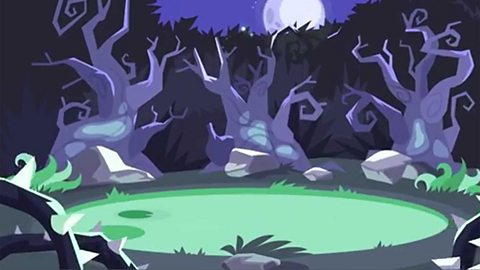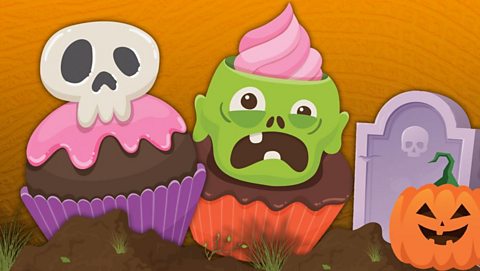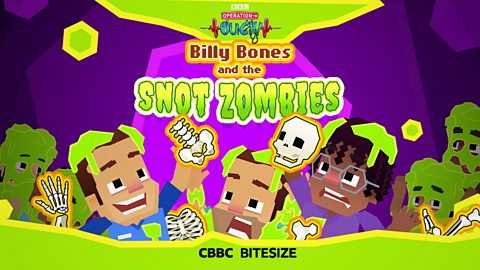What is Halloween?
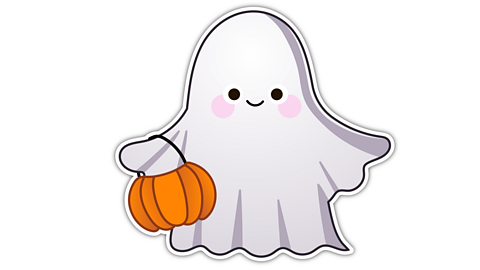
Halloween is celebrated each year on October 31stall over the world.
It is a day where people celebrate all things spooky and scary.
The name Halloween comes from All HallowsÔÇÖ Eve, which is the day before All HallowsÔÇÖ Day, or All SaintsÔÇÖ Day, a Christian holiday.
The origins of Halloween can be traced back to the pagan festival of Samhain (pronounced Sow-in), celebrated by the Celts of ancient Europe to mark the end of the harvest season and the start of winter. November 1 marked the start of the new year so Samhain was New YearÔÇÖs Eve.

The origins of Halloween
┤¾¤¾┤½├¢ Teach: Primary Assemblies
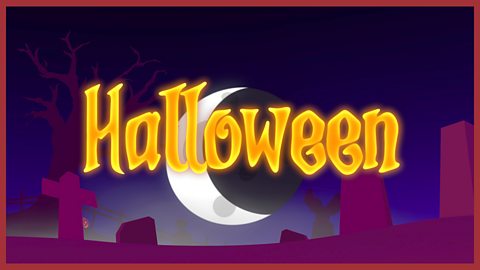
How is Halloween celebrated?
Halloween is often celebrated by children and adults by dressing up in spooky costumes and going from house to house trick or treating.
- Pumpkin picking
- Watching scary movies
- Making halloween themed food
Eco-friendly ideas for a very green Halloween
Bitesize: The Regenerators
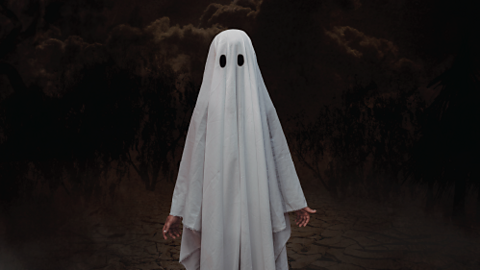
Halloween Scientific Experiments
┤¾¤¾┤½├¢ Teach
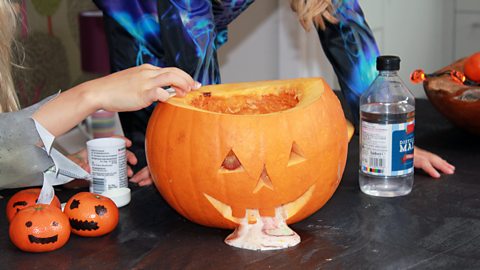
Activity: Halloween Quiz
Try our horrifying historical Halloween quiz.
English
Writing a scary story
When writing a scary story, there are a few elements to think about to build up the suspense.
Setting: You could set the story in a familiar place, like a school, a playground, or a home, but with an eerie twist. This creates an atmosphere of "what if?"
Characters: You could include some ghosts or monsters, they might be scary or they could be misunderstood.
Plot: Scary stories often have a mysterious storyline. You could have a big unexpected twist at the end.
Scary stories are supposed to be, you guessed it, scary.
Watch what happens to these ducks for example.
Hey, not so fast ducks.
When you write a scary story you need to frighten the reader.
Sometimes this will be through suspense and atmosphere, or through shocks, I said through shocks!
Perfect.
Myth or Legend?
Bitesize: KS2 English
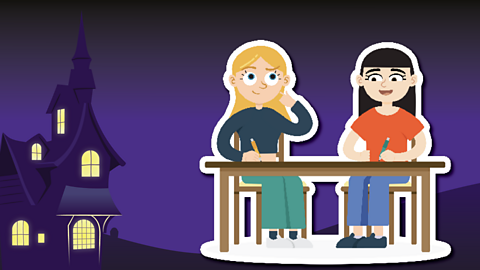
What is personification?
Bitesize: KS2 English
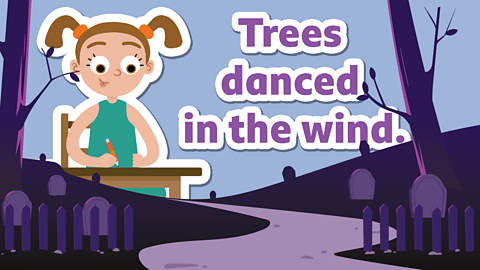
Figurative language
Bitesize: KS2 English
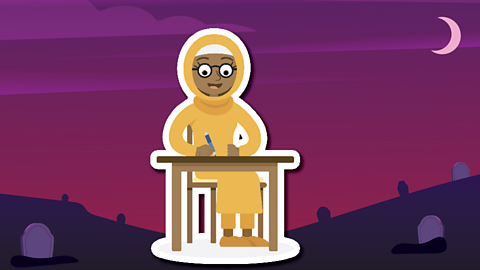
Art and Design
Halloween is time to get crafty and conjure up costumes and cakes!
Make sure you ask an adult to help you when using an oven or hot pans.
The Worst Witch Costume Tutorial
C┤¾¤¾┤½├¢
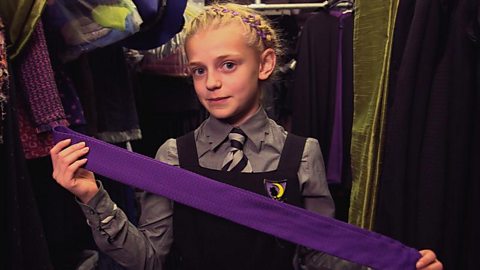
Bewitching bakes
┤¾¤¾┤½├¢ Food
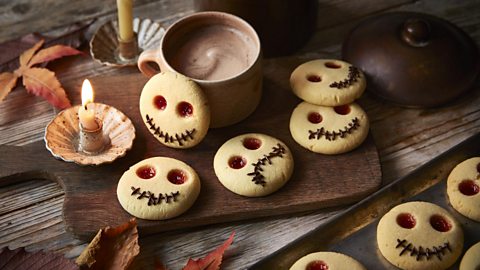
Monster Maths
Have a go at this fun, maths-themed halloween activity.
Can you find the coordinates for the witches hat and the pumpkin?
Watch the video to learn how to find coordinates.
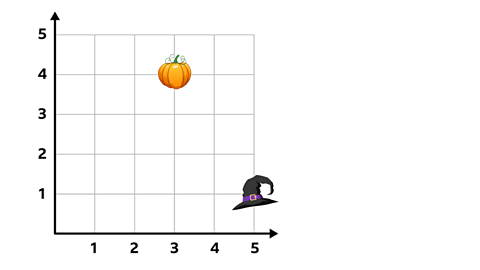
Can you find the coordinates of the pumpkin?
Can you find the coordinates of the witches hat?
The pumpkin is at 3, 4.
The witches hat is at 5,1.
Biology: What does your skeleton do?
Why is the skeleton so important to us? Watch this video to find out.
Watch Mr No-Skeleton show us the importance of our bones.
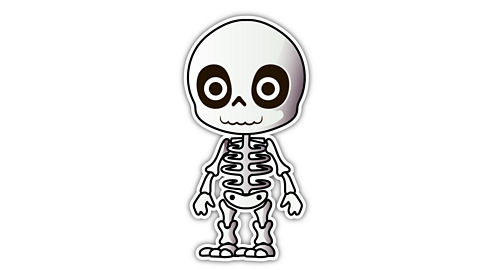
Did you know?
Babies have around 300 bones, but as they grow, some bones fuse together, resulting in adults having 206 bones.
The smallest bone in the human body is the stapes bone in the ear, while the femur (thigh bone) is the longest and strongest bone.
Your body continuously breaks down old bone and rebuilds new bone, a process known as remodelling.

Go explore: Night creatures
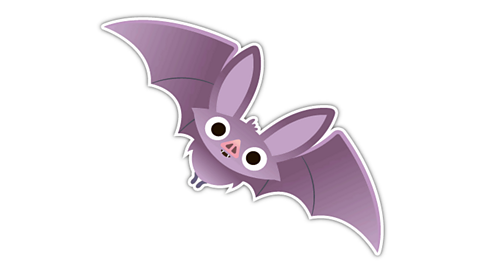
Bats and most moths are nocturnal which means they are most active at night.
Bats are associated with Halloween because they come out in the dark and they are a feature of vampire stories like Bram Stoker's Dracula.
Learn how to spot bats and attract moths with thanks to Bitesize Parent's Toolkit and the Wildlife Trust.
Maybe you'll even spot the spooky DeathÔÇÖs-head Hawk-moth, which visits this country in autumn. It gets its name from the a skull-like marking on its back.
Make sure you're accompanied by an adult and remember to dress for the weather so you can stay warm and dry.

How to spot bats in the UK
Bitesize Parent's Toolkit
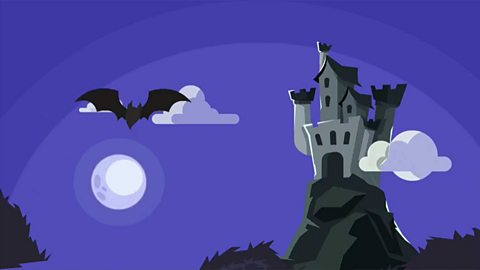
How to make a moth magnet
Bitesize Parent's Toolkit
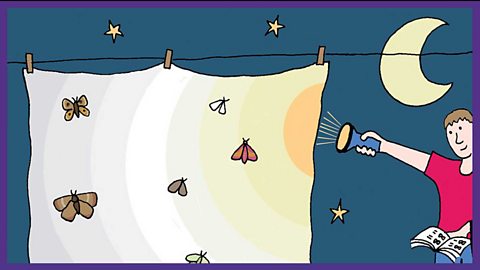
Colouring Activity
Grab your crayons, felt tips, or colouring pencils and get ready to dive into some Halloween colouring.
You can print off the downloadable colouring sheet or draw your own spooky scene.
Download the colouring sheet

Play
Guardians: Defenders of Mathematica game is back with a thrilling Halloween twist! This special update, available until November 4th, brings a ghostly, eerie atmosphere to the realm of Mathematica.
Whether youÔÇÖre a seasoned defender or new to the game, Guardians: Defenders of Mathematica promises to immerse you in a thrilling world while practising core KS2 maths skills.
Guardians: Defenders of Mathematica
Bitesize: KS2 Maths
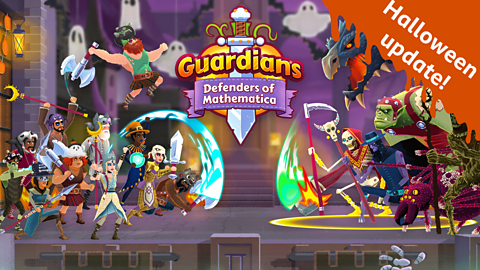
Operation Ouch! It Takes Guts
KS2 Science
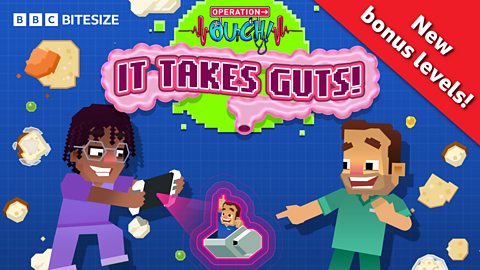
Play Bitesize Primary games. gamePlay Bitesize Primary games
Fun and educational primary games in science, maths, English, history, geography, art and design, computing and modern languages.

